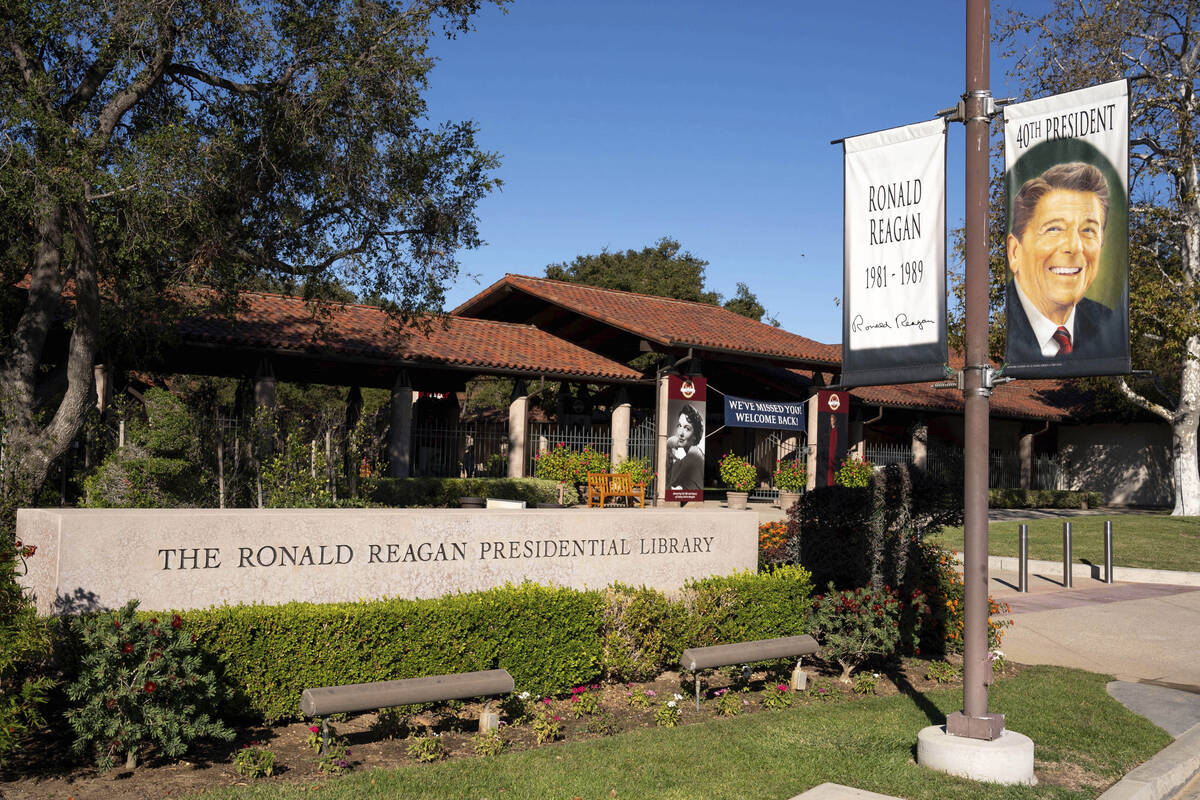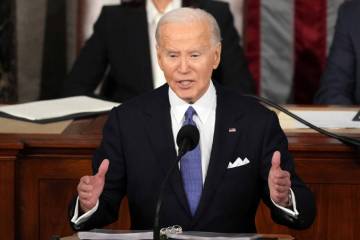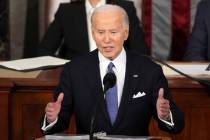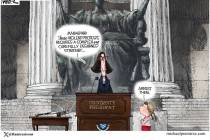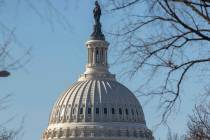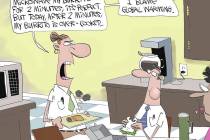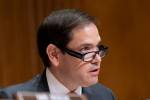RUBEN NAVARRETTE JR.: Our political parties have become unrecognizable
When you’re in the political center, you get attacked by partisans on both sides. It sometimes seems the only thing that unites liberals and conservatives is how much both camps dislike those of us in the middle of the road.
I used to push back when challenged. But in recent years, I’ve become more laid-back — and a bit mischievous.
When someone identifies as a Democrat, I’ll respond: “Great! What kind of Democrat are you?” The same goes for those who identify as Republican: “That’s awesome,” I’ll say. “What kind of Republican are you?”
Are they the kind of Democrat who supports refugees or the kind that supports President Joe Biden’s attempt to all but eliminate asylum when border crossings get too high? Are they the kind of Republican who supports free trade or the kind who backs the tariffs on aluminum and steel imposed by then-President Donald Trump?
I’m not playing gotcha or setting a trap. I’m genuinely curious as to where people are coming from. I don’t just want to know how they define themselves. I want to know why they see themselves in that light. Often, people can’t verbalize it. Or they use the opposing party as a north star. They say they’re a Democrat because they can’t stand Republicans or they’re a Republican because they have no faith in Democrats.
I’m also trying to make a point. I want more Americans to see that the major political parties in this country ain’t what they used to be. Often, the principles and values that once attracted followers are no longer adhered to. And in some cases, what the parties claim to stand for now are some of the very things they were said to oppose years ago.
Now that both Republicans and Democrats have turned themselves inside out — especially on hot-button issues such as immigration, guns and abortion — to win elections, political labels have become worthless.
Generally speaking, the parties have gravitated to the extremes and away from the middle.
In the process, ideological labels got scrambled.
In the Republican Party, what passes for a “conservative” today might have been stranded on the far-right fringe years ago, while what passes for a “moderate” today might have been seen as quite “conservative” not long ago. For Democrats, a self-described “progressive” would have been isolated on the left-wing margins years ago, while what we consider a “moderate” could be considered a traditional “liberal.”
Political historian Brian Rosenwald, a scholar in residence at the University of Pennsylvania, has studied this. While he acknowledges that elements of the Democratic Party have moved to the left, he is more concerned about what he sees as a dramatic rightward drift by the GOP.
Analyzing the ideologies of different members of Congress, Rosenwald suggests that even a legendary “arch-conservative” like Sen. Jesse Helms, R-N.C., would today be considered more moderate. Helms’s career voting record would make him the 14th-most conservative member of the current Senate, he argues.
“This illustrates something not discussed frequently enough in the media,” Rosenwald wrote in an op-ed for Smerconish.com, the digital hub of SiriusXM radio host Michael Smerconish. “Republicans have lurched so far to the right over the last few decades that labels like moderate and conservative have become distorted.”
Political observers insist that neither Democrat John F. Kennedy nor Republican Ronald Reagan could be elected today to lead their party. Reagan — who legalized approximately 2.7 million undocumented immigrants — would be judged too liberal for Republicans. Kennedy — a foreign policy hawk who cut taxes — would be deemed too conservative for Democrats.
Besides, there used to be “conservative Democrats” and “liberal Republicans.” That was actually a thing, and our politics were better off. You don’t get much done with absolutes and bright lines and 100 percenters who reject half a loaf. You need nuance, flexibility and common sense.
Nowadays, how we define ourselves is irrelevant. It’s what is in our hearts that matters. I want more people to look inside and recognize what’s there. We shouldn’t even be allowed to identify ourselves politically until we’ve engaged in the difficult, often uncomfortable, process of introspection. We can’t know what we are until we know who we are.
The political parties muddy the waters with dishonesty and double talk. On Monday, they support one thing; by Friday, they’re for the opposite.
Rosenwald is half right. Political labels have become distorted. But what’s worse is that, along the way, our politics have become disfigured.
Ruben Navarrette can be reached be email at crimscribe@icloud.com. His podcast, “Ruben in the Center,” is available through every podcast app.



